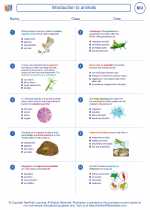Antidiuretic Hormone (ADH)
Antidiuretic hormone (ADH), also known as vasopressin, is a hormone produced by the hypothalamus and released by the pituitary gland. It plays a crucial role in regulating the body's water balance by controlling the amount of water reabsorbed by the kidneys and the concentration of urine produced.
Functions of Antidiuretic Hormone
- Regulation of water balance in the body
- Control of blood pressure by constricting blood vessels
- Stimulation of the release of ACTH (adrenocorticotropic hormone) from the pituitary gland
Mechanism of Action
ADH acts on the kidneys to increase the permeability of the collecting ducts, allowing for greater reabsorption of water back into the bloodstream. This results in a decrease in the volume of urine produced and a more concentrated urine. ADH also acts on blood vessels to cause vasoconstriction, which helps to elevate blood pressure.
Regulation of Antidiuretic Hormone
The release of ADH is primarily regulated by changes in the concentration of solutes in the blood and the volume of blood. When the body senses an increase in blood osmolarity or a decrease in blood volume, the hypothalamus signals the pituitary gland to release ADH. Conversely, when blood osmolarity decreases or blood volume increases, ADH secretion is inhibited.
Disorders Related to Antidiuretic Hormone
Imbalances in ADH secretion can lead to health issues such as diabetes insipidus (characterized by excessive urination and thirst due to inadequate ADH production) and syndrome of inappropriate antidiuretic hormone (SIADH) where the body retains water excessively, leading to a decrease in sodium levels in the blood.
Study Guide
When studying antidiuretic hormone, it's important to focus on understanding its role in regulating water balance, its mechanism of action on the kidneys and blood vessels, and how its release is regulated. Additionally, familiarize yourself with disorders related to ADH and their impact on the body's homeostasis.
Key Topics to Cover:
- Functions of ADH
- Mechanism of action of ADH on the kidneys and blood vessels
- Regulation of ADH release
- Disorders related to ADH (diabetes insipidus, SIADH)
◂Biology Worksheets and Study Guides High School. Introduction to animals

 Worksheet/Answer key
Worksheet/Answer key
 Worksheet/Answer key
Worksheet/Answer key
 Worksheet/Answer key
Worksheet/Answer key
 Vocabulary/Answer key
Vocabulary/Answer key
 Vocabulary/Answer key
Vocabulary/Answer key
 Vocabulary/Answer key
Vocabulary/Answer key
